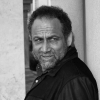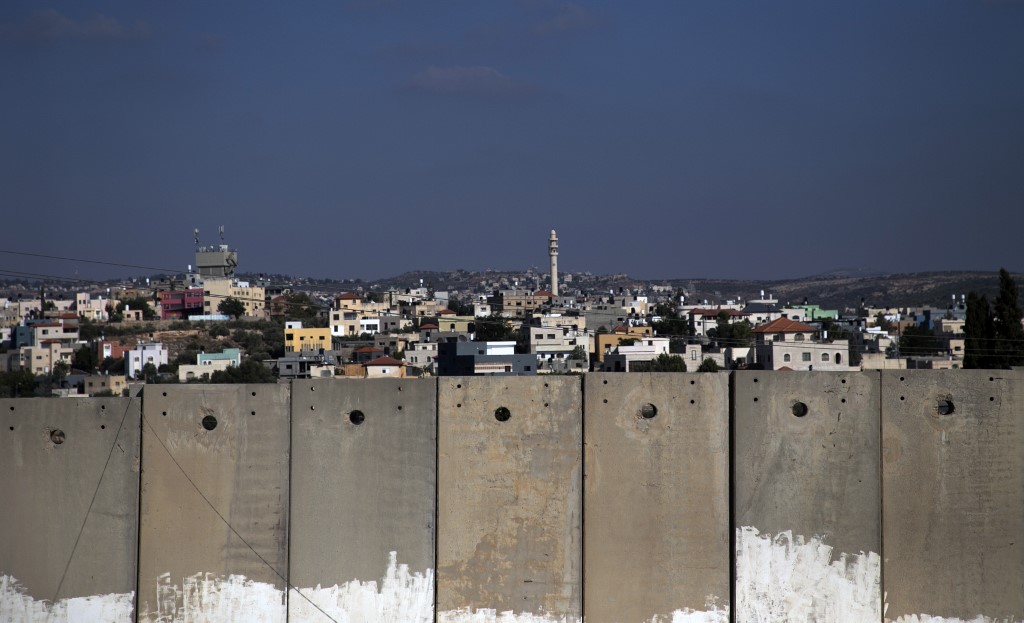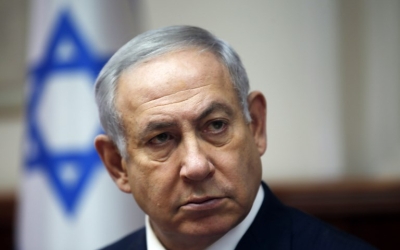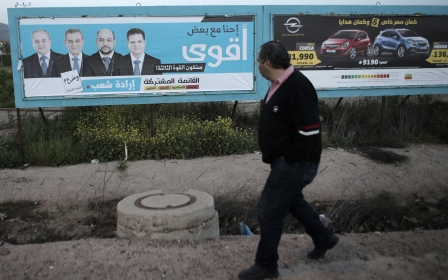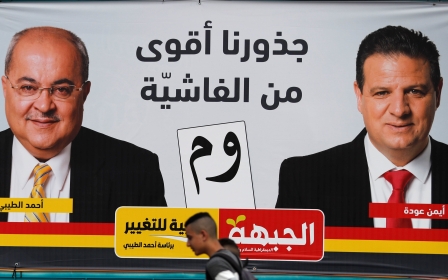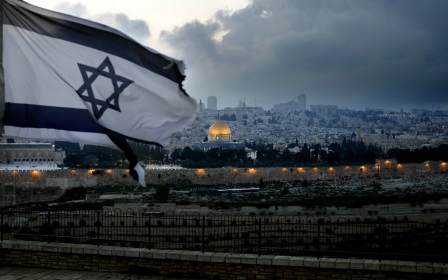Israel's election changes little for Palestinians
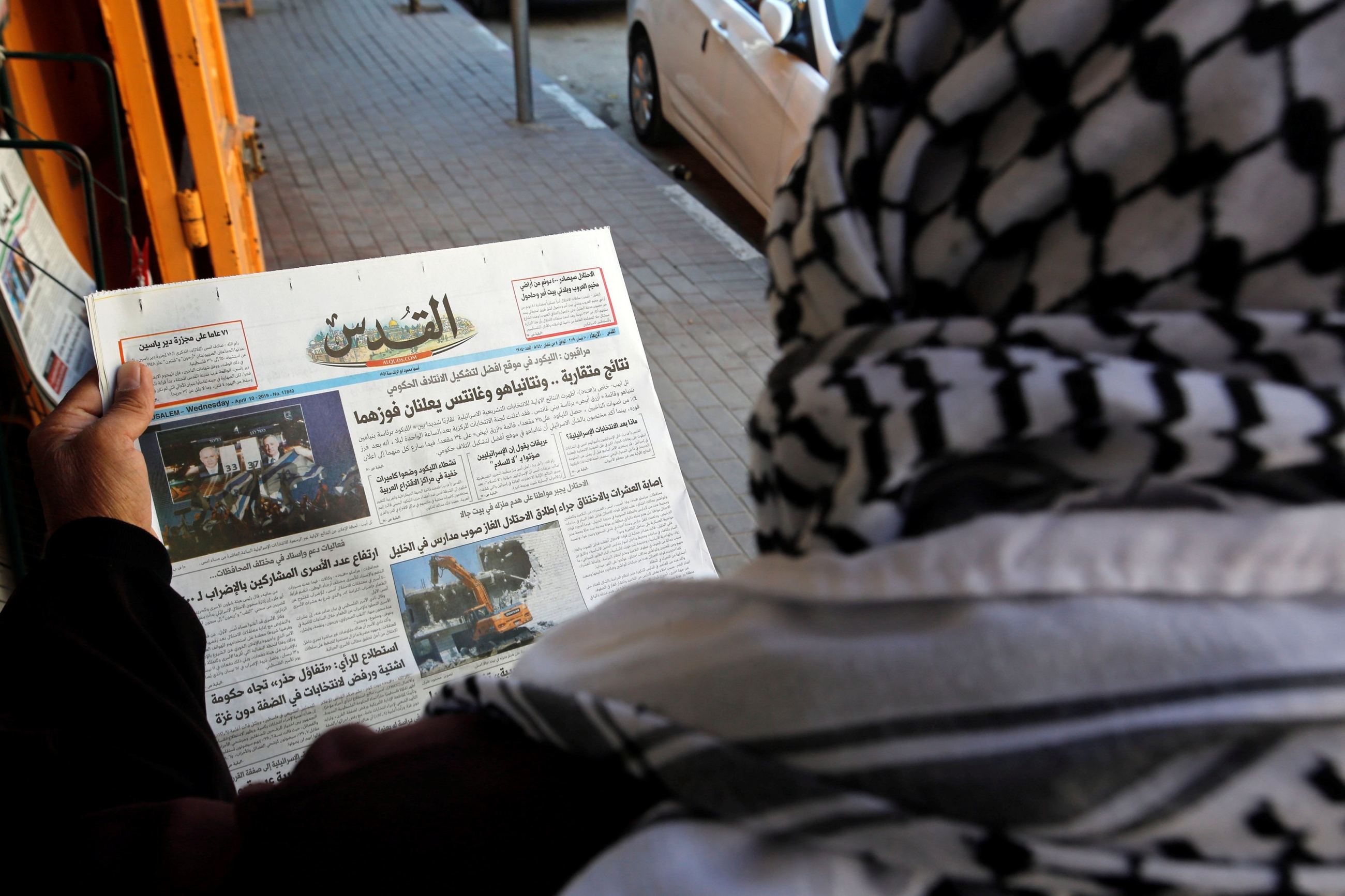
It has become clear that Likud leader Benjamin Netanyahu will form the next Israeli government.
Though Likud and the Blue and White alliance headed by alleged war criminal Benny Gantz were neck and neck after Tuesday's vote, with each winning 35 Knesset seats after a hotly contested campaign, Likud's right-wing bloc was poised to form a coalition government.
Some international observers and Palestinian politicians had hoped that Gantz would prevail, viewing him as someone with whom the Palestinian Authority could negotiate.
But in reality, Gantz, the former Israeli army chief who orchestrated two masscres against the population of Gaza in 2012 and 2014, would have continued the state's policies of ethnically cleansing Palestinians – just as Netanyahu will do.
No Israeli political group – neither Likud nor Blue and White – is prepared to accept a Palestinian state as the expression of the Palestinian right to self-determination
The election leaves members of the international community who are committed to human rights with only one appropriate response: the boycott, divestment and sanctions (BDS) movement.
New MEE newsletter: Jerusalem Dispatch
Sign up to get the latest insights and analysis on Israel-Palestine, alongside Turkey Unpacked and other MEE newsletters
Gantz, who is facing a war crimes lawsuit in the Netherlands, is threatened by any serious offer from the Palestinians for peace with justice – whether in the form of a two-state solution or a secular, democratic state of all its citizens, regardless of ethnicity, race or gender.
Like the rest of the Zionist parties, Blue and White opposes the withdrawal of Israeli troops from the territories Israel occupied in 1967, and is against the implementation of UN Resolution 194, which recognises the right of Palestinian refugees to return to their homes and obtain compensation.
Similar visions
With Likud poised to lead the next government, and in light of recent US moves to recognise Jerusalem as Israel's capital and the Golan Heights as Israeli territory, the next step could be to annex the settlement blocs of the West Bank.
No Israeli political group – neither Likud nor Blue and White – is prepared to accept a Palestinian state as the expression of the Palestinian right to self-determination.
Blue and White would only be prepared to negotiate with Palestinians in order to give them a semi-Bantustan (territory set aside for black South Africans as part of apartheid policy), in which they could have municpial services, such as garbage collection; raise a Palestinian flag; and, most importantly, continue security coordination with Israel.
Nor is Likud prepared to give the Palestinians anything like true independence. Under its vision of the future, Palestinians should be allowed to run their own affairs, but only under strict and binding Israeli tutelage. There is no real difference.
To understand the context of Israel's unilateral separation policy, it is crucial to acknowledge that around 70 percent of the two million people in Gaza are refugees, expelled from their homes in the process of Israel's creation in 1948.
Their expulsion was "necessary," according to Israel’s leading "new historian" Benny Morris, in order to create a Jewish state. This week's vote shows how the majority of Jewish Israelis still feel that their demographic majority is under threat.
BDS against international complicity
Whether the country is run by Gantz or Netanyahu, in order to break Israel's demographically motivated cycle of ethnic cleansing, the state must be held accountable for its actions.
I write this from the eastern fence of the Gaza Strip, where several recent massacres have been committed that parallel the 1960 Sharpeville massacre in South Africa, which led to the intensification of the BDS campaign against the apartheid regime there.
To counter international complicity with Israel's crimes, an intensified, grassroots BDS campaign against Israeli apartheid is needed. In apartheid-era South Africa, the BDS campaign ultimately led to the creation of a democratic, multi-racial, multicultural state.
Whether Israel is run by Likud or Blue and White, apartheid is resurrected in its ugliest form, including Bantustans and a lack of Palestinian control over their land, water and borders. The anti-apartheid route must be followed until an inclusive, secular, democratic state is established – one where all citizens are equal.
The views expressed in this article belong to the author and do not necessarily reflect the editorial policy of Middle East Eye.
Middle East Eye delivers independent and unrivalled coverage and analysis of the Middle East, North Africa and beyond. To learn more about republishing this content and the associated fees, please fill out this form. More about MEE can be found here.


